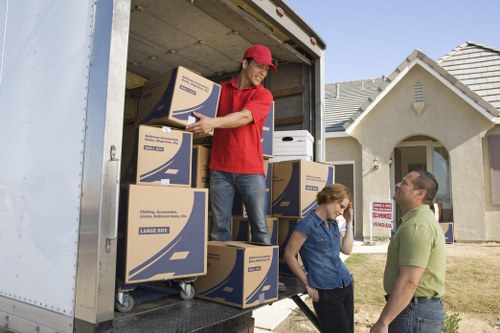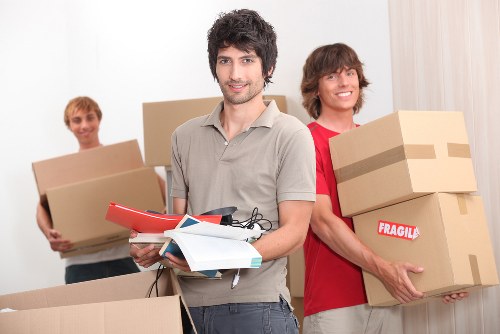Comprehensive Guide to Waste Clearance in Virginia Water

Waste clearance is a critical service in Virginia Water, ensuring that the community remains clean, healthy, and environmentally friendly. Whether you are a homeowner, a business owner, or managing a public space, understanding the nuances of waste clearance can help you maintain a clutter-free and safe environment.
Virginia Water, known for its picturesque landscapes and vibrant community, faces challenges related to waste management just like any other growing area. Proper waste clearance not only enhances the aesthetic appeal of the region but also plays a significant role in public health and environmental conservation.
In this article, we will delve into the various aspects of waste clearance in Virginia Water, including the types of waste, the best practices for disposal, and the services available to residents and businesses.
Understanding Waste Clearance

Waste clearance involves the removal and disposal of unwanted materials from residential, commercial, and industrial areas. It encompasses a wide range of activities, from collecting household trash to managing hazardous waste from industrial sites.
Effective waste clearance requires a systematic approach to ensure that waste is managed responsibly. This includes categorizing waste, using appropriate disposal methods, and adhering to local regulations to minimize environmental impact.
In Virginia Water, various entities, including municipal services and private companies, are involved in waste clearance. Understanding their roles and how they interact can help residents better navigate waste management processes.
Types of Waste Managed in Virginia Water

Waste management in Virginia Water covers several categories, each requiring specific handling procedures:
- Household Waste: Everyday items such as food scraps, packaging, and paper products.
- Recyclable Materials: Items like glass, metal, plastic, and paper that can be processed and reused.
- Hazardous Waste: Substances that are dangerous to human health or the environment, including chemicals, batteries, and electronics.
- Bulky Waste: Large items like furniture, appliances, and construction debris that require special disposal methods.
- Organic Waste: Biodegradable materials such as yard clippings, compost, and animal waste.
Each type of waste requires a tailored approach to ensure it is disposed of safely and efficiently. Proper categorization helps in recycling efforts and reduces the burden on landfills.
Best Practices for Waste Disposal

Adhering to best practices in waste disposal is essential for maintaining a clean and sustainable community. Here are some recommended practices for effective waste clearance:
- Reduce, Reuse, Recycle: Minimize waste by reducing consumption, reusing items when possible, and recycling materials.
- Segregate Waste: Separate waste into categories such as recyclables, organics, and non-recyclables to facilitate proper disposal.
- Use Approved Containers: Ensure that waste is placed in appropriate bins or containers to prevent contamination and facilitate efficient collection.
- Timely Disposal: Dispose of waste regularly to avoid accumulation and potential health hazards.
- Educate the Community: Promote awareness about waste management practices and encourage community participation in keeping Virginia Water clean.
Implementing these practices can significantly improve waste clearance efficiency and contribute to environmental sustainability.
Services Available for Waste Clearance

Residents and businesses in Virginia Water have access to a variety of waste clearance services tailored to their specific needs. These services include:
- Residential Waste Collection: Regular pickup of household trash, recyclables, and organic waste.
- Commercial Waste Management: Specialized services for businesses, including bulk waste removal, recycling programs, and hazardous waste handling.
- Recycling Centers: Facilities where residents can drop off recyclable materials for proper processing.
- Hazardous Waste Disposal: Safe collection and disposal services for hazardous materials to prevent environmental contamination.
- Bulky Item Pickup: Scheduled removal of large items such as furniture and appliances.
Choosing the right service provider is crucial for efficient waste management. It ensures that waste is handled responsibly and in compliance with local regulations.
Local Regulations and Compliance
Virginia Water has specific regulations governing waste clearance to protect public health and the environment. Understanding and complying with these regulations is essential for both residents and businesses.
Key regulations include guidelines on waste segregation, prohibited items, and disposal methods. Non-compliance can result in fines and other penalties, making it important to stay informed about local waste management laws.
Municipal authorities often provide resources and support to help the community adhere to these regulations. It is advisable to consult official sources or waste management professionals for the most accurate and up-to-date information.
Environmental Impact of Waste Clearance
Waste clearance has significant environmental implications. Proper waste management practices can reduce pollution, conserve natural resources, and mitigate climate change.
Recycling and composting, for example, lower the amount of waste sent to landfills, reducing greenhouse gas emissions. Additionally, responsible disposal of hazardous waste prevents soil and water contamination, safeguarding ecosystems and public health.
By adopting sustainable waste management practices, Virginia Water can contribute to a healthier environment and set an example for other communities.
Technological Innovations in Waste Clearance
Advancements in technology have revolutionized waste clearance, making it more efficient and environmentally friendly. Innovations such as automated waste collection systems, smart bins, and waste-to-energy technologies are being implemented in Virginia Water to enhance waste management.
Smart bins equipped with sensors can monitor waste levels in real-time, optimizing collection routes and reducing fuel consumption. Waste-to-energy plants convert non-recyclable waste into electricity, providing a renewable energy source while minimizing landfill use.
These technological solutions not only improve the efficiency of waste clearance but also support sustainability goals by reducing environmental impact.
Challenges in Waste Clearance
Despite advancements, waste clearance in Virginia Water faces several challenges. Increasing population and urbanization lead to higher waste generation, straining existing waste management systems.
Inadequate recycling infrastructure and limited public awareness about proper waste segregation contribute to inefficient waste clearance. Additionally, the handling of hazardous and electronic waste requires specialized expertise to prevent environmental contamination.
Addressing these challenges involves investment in infrastructure, community education, and the adoption of innovative waste management practices.
Future of Waste Clearance in Virginia Water
The future of waste clearance in Virginia Water looks promising with ongoing initiatives aimed at improving sustainability and efficiency. Plans include expanding recycling programs, investing in waste-to-energy technologies, and enhancing public education on waste management.
Community engagement is expected to play a crucial role in these developments. By fostering a culture of responsibility and sustainability, Virginia Water can achieve its waste management goals and maintain its reputation as a clean and green community.
Continuous improvements and adaptability to new technologies and practices will ensure that waste clearance remains effective in the face of growing environmental and societal demands.
10-15 Closest Areas to Virginia Water for Waste Clearance
- Wraysbury: Located just north of Virginia Water, Wraysbury offers similar waste clearance services with additional support for residential areas.
- Addlestone: A neighboring town with robust recycling programs and efficient waste management systems.
- West Byfleet: Known for its eco-friendly waste clearance initiatives, including composting and green waste recycling.
- Old Windsor: Provides comprehensive waste clearance services, including bulk item pickup and hazardous waste disposal.
- Staines-upon-Thames: Features advanced waste collection systems and numerous recycling centers.
- Virginia Water: The focal point with extensive waste clearance services catering to both residents and businesses.
- Chertsey: Offers reliable waste management solutions with a focus on sustainability and recycling.
- Byfleet Small community with efficient waste collection and disposal services.
- Shepperton: Combines traditional waste clearance methods with modern recycling practices.
- Bouley Hill: Provides specialized waste management services, particularly for commercial establishments.
- Hersham: Emphasizes community participation in waste management and recycling initiatives.
- East Molesey: Active in promoting waste reduction and responsible disposal practices.
- Thorpe: Offers tailored waste clearance services for both residential and industrial needs.
- Chertsey Similar to nearby Chertsey, with additional focus on reducing landfill use through recycling.
Conclusion
Effective waste clearance is vital for maintaining the cleanliness and sustainability of Virginia Water. By understanding the types of waste, adhering to best practices, utilizing available services, and staying informed about local regulations, residents and businesses can contribute to a healthier environment.
Embracing technological innovations and overcoming existing challenges will further enhance waste management efforts, ensuring that Virginia Water remains a desirable place to live and work.
Community involvement and continuous improvement are key to achieving long-term sustainability goals, making waste clearance an integral part of Virginia Water’s ongoing success.
Frequently Asked Questions
- 1. What types of waste can be recycled in Virginia Water?
Virginia Water accepts recyclables such as paper, cardboard, glass, metal, and certain plastics. It's important to follow local guidelines for proper segregation.
- 2. How often is household waste collected in Virginia Water?
Household waste collection typically occurs weekly. Residents should check their local council’s schedule for specific pickup days.
- 3. What should I do with hazardous waste in Virginia Water?
Hazardous waste should be taken to designated collection centers or handled by specialized waste clearance services to ensure safe disposal.
- 4. Are there any fees associated with bulky waste pickup?
Bulky waste pickup may incur additional fees. It’s advisable to contact local waste clearance services for detailed pricing information.
- 5. How can businesses participate in recycling programs in Virginia Water?
Businesses can participate by partnering with local waste management providers, implementing recycling protocols, and encouraging employee participation in waste reduction initiatives.